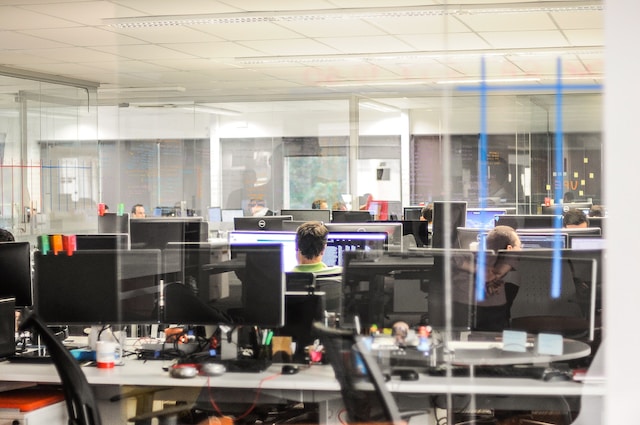DevSecOps Engineer vs. Cyber Threat Analyst
DevSecOps Engineer vs Cyber Threat Analyst: A Comprehensive Comparison

Table of contents
In the rapidly evolving landscape of cybersecurity, two roles have emerged as critical components in safeguarding digital assets: the DevSecOps Engineer and the Cyber Threat Analyst. While both positions play vital roles in an organization's security posture, they focus on different aspects of cybersecurity. This article delves into the definitions, responsibilities, required skills, educational backgrounds, tools and software used, common industries, outlooks, and practical tips for getting started in these two dynamic careers.
Definitions
DevSecOps Engineer: A DevSecOps Engineer integrates security practices within the DevOps process. This role emphasizes the importance of incorporating security at every stage of the software development lifecycle (SDLC), ensuring that security is a shared responsibility among development, operations, and security teams.
Cyber Threat Analyst: A Cyber Threat Analyst focuses on identifying, analyzing, and mitigating cyber threats to an organization. This role involves Monitoring networks for suspicious activity, conducting threat intelligence research, and developing strategies to protect against potential attacks.
Responsibilities
DevSecOps Engineer
- Integrate security practices into the CI/CD pipeline.
- Automate security testing and Compliance checks.
- Collaborate with development and operations teams to ensure secure coding practices.
- Conduct security assessments and Vulnerability scans.
- Implement security tools and frameworks to enhance Application security.
Cyber Threat Analyst
- Monitor network traffic for anomalies and potential threats.
- Analyze Threat intelligence data to identify emerging threats.
- Conduct Incident response and forensic analysis.
- Develop and maintain threat models and risk assessments.
- Collaborate with other security teams to enhance overall security posture.
Required Skills
DevSecOps Engineer
- Proficiency in programming languages (e.g., Python, Java, Ruby).
- Strong understanding of DevOps practices and tools (e.g., Docker, Kubernetes).
- Knowledge of security frameworks (e.g., OWASP, NIST).
- Familiarity with cloud security principles and tools (e.g., AWS, Azure).
- Experience with CI/CD tools (e.g., Jenkins, GitLab CI).
Cyber Threat Analyst
- Strong analytical and problem-solving skills.
- Knowledge of network protocols and security technologies (e.g., Firewalls, IDS/IPS).
- Familiarity with threat intelligence platforms and frameworks (e.g., MITRE ATT&CK).
- Proficiency in using SIEM tools (e.g., Splunk, ELK Stack).
- Excellent communication skills for reporting findings and collaborating with teams.
Educational Backgrounds
DevSecOps Engineer
- Bachelor’s degree in Computer Science, Information Technology, or a related field.
- Relevant certifications (e.g., Certified DevSecOps Professional, AWS Certified Security).
Cyber Threat Analyst
- Bachelor’s degree in Cybersecurity, Information Security, or a related field.
- Relevant certifications (e.g., Certified Information Systems Security Professional (CISSP), Certified Ethical Hacker (CEH)).
Tools and Software Used
DevSecOps Engineer
- CI/CD tools: Jenkins, GitLab CI, CircleCI.
- Security testing tools: Snyk, Aqua Security, Veracode.
- Configuration management tools: Ansible, Chef, Puppet.
- Container security tools: Twistlock, Sysdig.
Cyber Threat Analyst
- SIEM tools: Splunk, IBM QRadar, LogRhythm.
- Threat intelligence platforms: Recorded Future, ThreatConnect.
- Forensic analysis tools: EnCase, FTK.
- Network monitoring tools: Wireshark, Nagios.
Common Industries
DevSecOps Engineer
- Technology and software development companies.
- Financial services and Banking.
- E-commerce and retail.
- Healthcare and pharmaceuticals.
Cyber Threat Analyst
- Government and defense agencies.
- Financial institutions and insurance companies.
- Telecommunications and IT service providers.
- Energy and utility companies.
Outlooks
The demand for both DevSecOps Engineers and Cyber Threat Analysts is on the rise as organizations increasingly prioritize security in their digital transformation efforts. According to the U.S. Bureau of Labor Statistics, employment for information security analysts is projected to grow by 31% from 2019 to 2029, much faster than the average for all occupations. As cyber threats become more sophisticated, the need for skilled professionals in both roles will continue to grow.
Practical Tips for Getting Started
- Gain Relevant Experience: Start with internships or entry-level positions in IT or cybersecurity to build foundational skills.
- Pursue Certifications: Obtain industry-recognized certifications to enhance your credibility and knowledge in your chosen field.
- Network with Professionals: Join cybersecurity forums, attend conferences, and connect with professionals on platforms like LinkedIn to learn from their experiences.
- Stay Updated: Follow cybersecurity news, blogs, and podcasts to keep abreast of the latest trends and threats in the industry.
- Build a Portfolio: For DevSecOps Engineers, create a portfolio showcasing your projects and contributions to open-source security tools. For Cyber Threat Analysts, document your research and analysis work.
In conclusion, both DevSecOps Engineers and Cyber Threat Analysts play crucial roles in the cybersecurity landscape, each with unique responsibilities and skill sets. By understanding the differences and similarities between these roles, aspiring professionals can make informed decisions about their career paths in the ever-evolving field of cybersecurity.
Manager SAP Security
@ KPMG Nederland | Amstelveen, NH, Netherlands
Full Time Entry-level / Junior EUR 66K+Production Service Systems Administrator 1
@ Oracle | United States
Full Time Mid-level / Intermediate USD 56K - 112KInformation System Security Officer
@ Leidos | 10469 Wright Patterson AFB OH, United States
Full Time Senior-level / Expert USD 104K - 189KSenior Security Analyst
@ Thales | Texas Remote Worker, United States
Full Time Senior-level / Expert USD 126K - 179KSenior Vulnerability Management Analyst
@ John Lewis Partnership | Bracknell Campus, United Kingdom
Full Time Senior-level / Expert GBP 48K - 74K